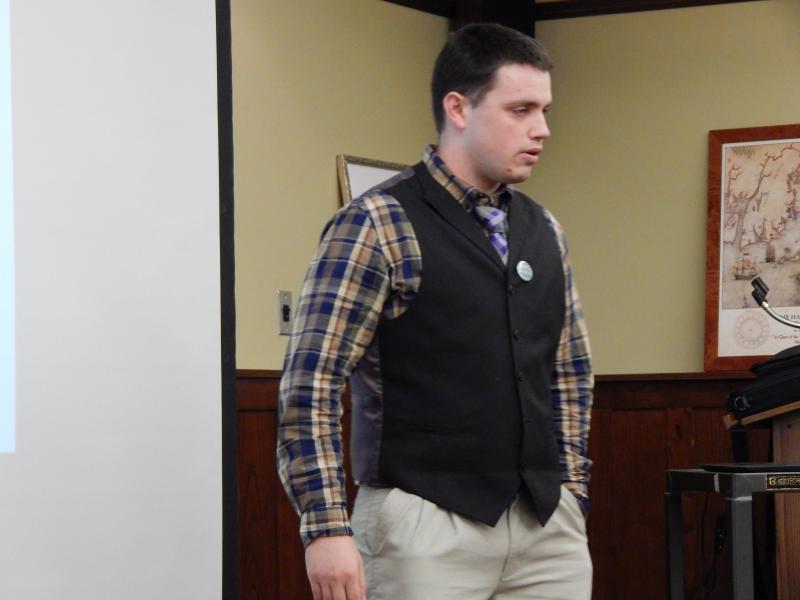Autistic community founder offers peek into a life with autism
Autistic people are perfectly fine the way they are, thank you very much.
That was the message that Charles "Chuck" McIntire brought to the Mattapoisett Library on November 15. McIntire is a part-time volunteer at the library, and also works at the Shipyard Galley restaurant.
Autistic himself, McIntire is also the founder of Intelligent Autism Media, an online community he organized to socialize with other autistic people and help them advocate for themselves. "We have a voice, even if we can't speak," he said.
McIntire founded the community as a means of support after commenting on a past made difficult by autism. He was diagnosed at age 4, and as a student he said, "I often felt quite bad about myself. I developed quite an inferiority complex, until I took an early-education class that asked me to look up the strengths of those with autism. My mind was blown," he recounted.
Autism is a neurological disorder; those with it have different neurons (nerve cells) and nervous systems than those labeled "neurotypical."
"We can't function like a neurotypical person," McIntire explained. "Really, we don't even want to. We think you're the weird ones!" he joked.
There is no "high" or "low" functioning autism, McIntire explained. "Really we're just all autistic and all ourselves."
McIntire said he was particularly upset by the stereotype of autistic people not having feelings or empathy. "That one really stabs me through the heart," he said. "We're incredibly empathetic because we know what it feels like to be outsiders, or to be down on ourselves. Emotions are what make us human."
What autistic people don't necessarily understand naturally, he added, is cognitive empathy, the ability to predict people's thoughts and emotions. "I notice patterns. So I might notice something about you that stands out, and I want to tell you about it because to me, that's what makes you fascinating," McIntire explained. "I never know or not whether what I tell you might offend you."
McIntire remarked on the importance of interent safety for everyone, but particularly autistic people. "A lot of autistic people socialize online, because it's easier than going out and talking to people," he said. "The amount of time we spend online makes us particularly vulnerable to cyberbullies and online predators."
What's the fastest way to put an autistic person at ease? Ask them about their interests. "I could talk to you for hours about my interests," McIntire enthused.
He finished the lecture by listing the "Autistic Charter of Rights." The charter notes that all autistic people have the right to life, humanity, parity, identity, safety, support, reputation, accuracy and equality.












